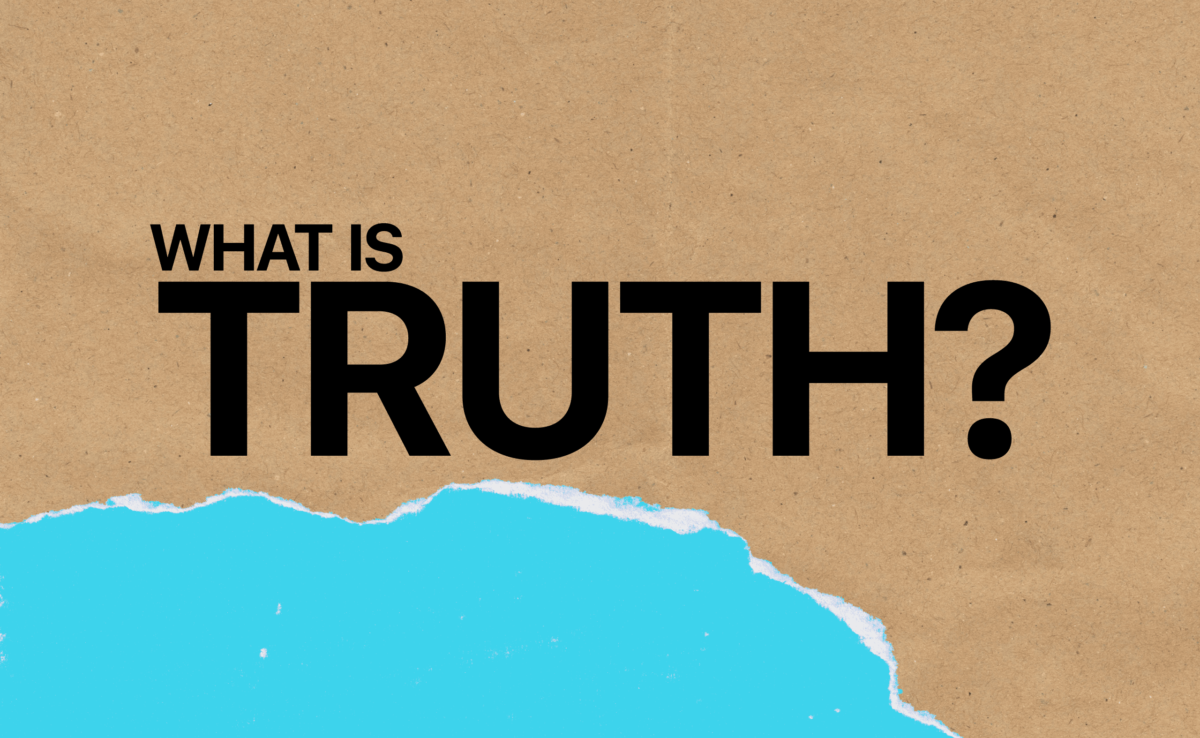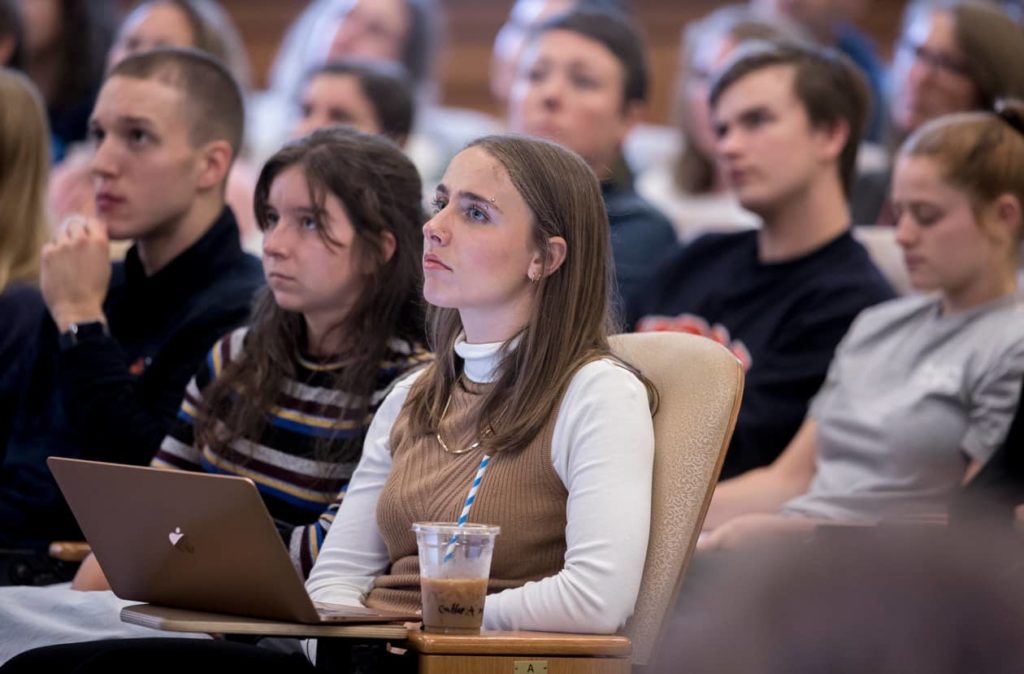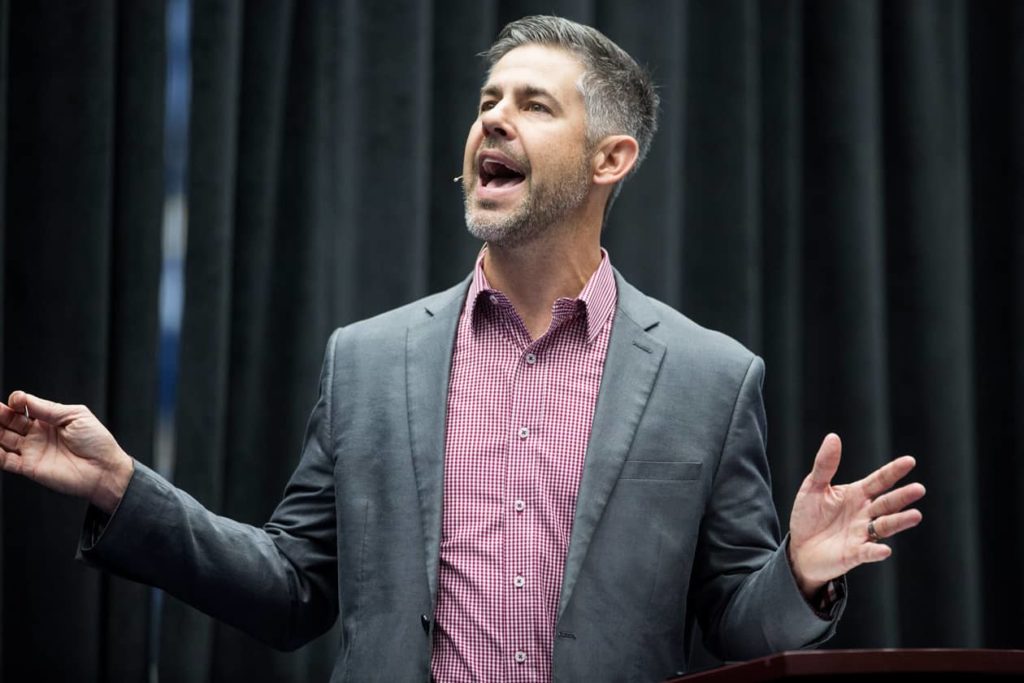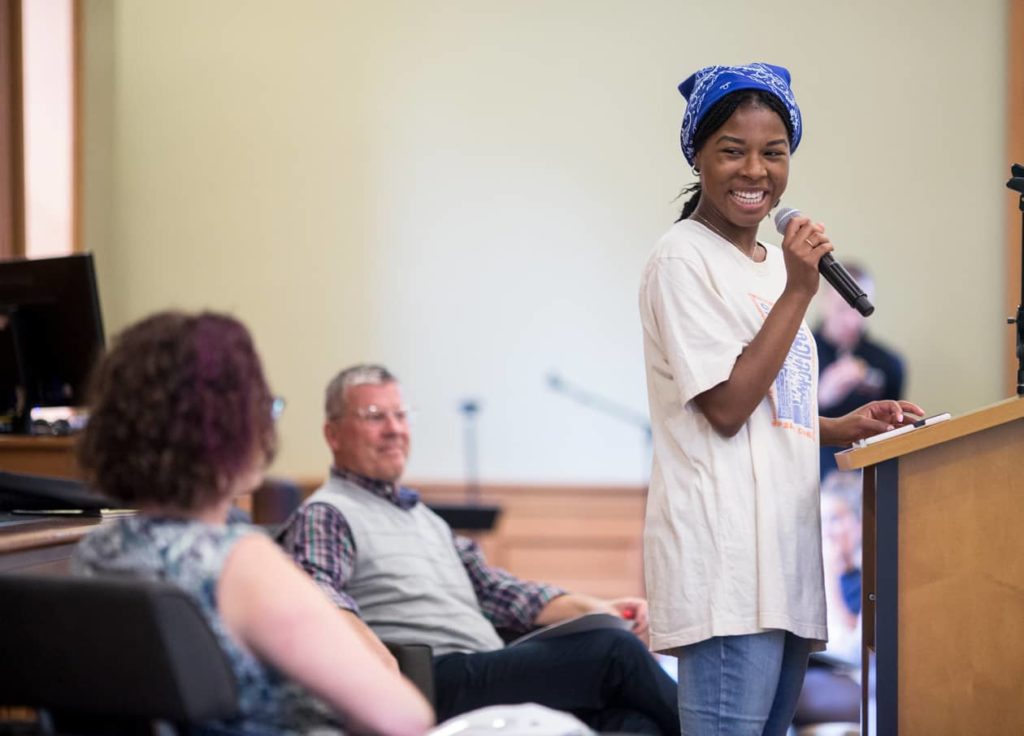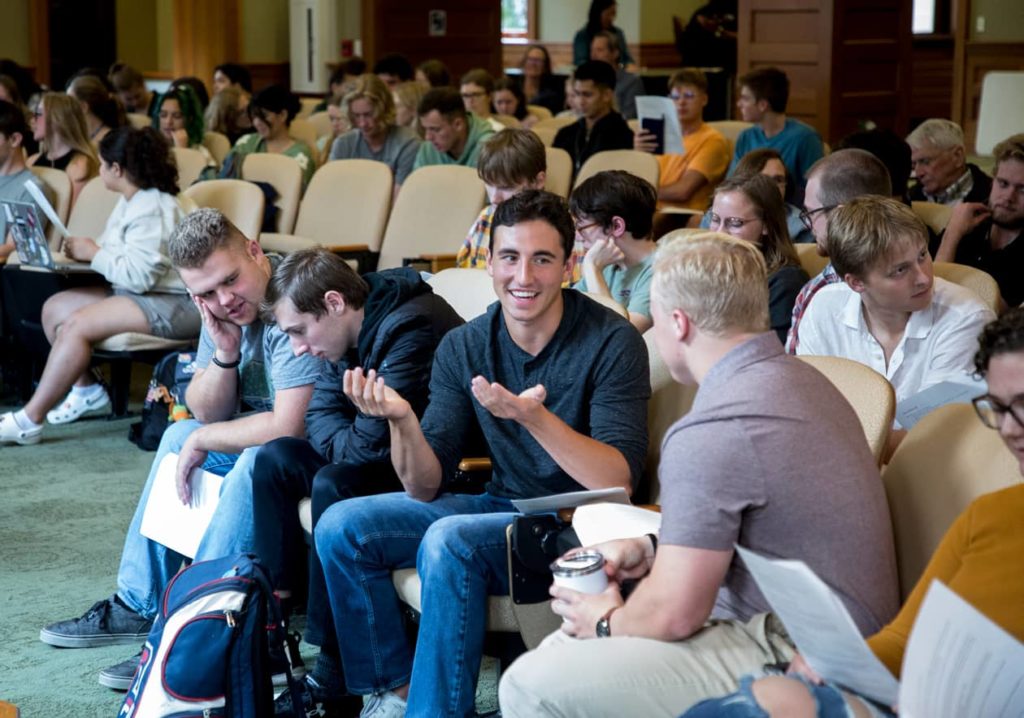What is Truth?
In a world of uncertainty, Christian higher ed can show the way.
COVID vaccines. Election security. Accusations of media bias. AI-generated images and deepfake videos. Homeopathic medicine. Climate change. The world, it seems, is becoming overrun with competing claims, misinformation, conspiracy theories and outright lies. It’s gotten so bad that many of us can’t tell what’s true anymore, or (worse) whether the truth even exists.
“As an institution, we believe in truth, simple as that,” said President Matt Scogin ’02 at Hope College’s 2023 Critical Issues Symposium. “Not only that, we believe in a God who personifies truth. Jesus has this stunning line, this world-changing line, where he says, ‘I am truth.’ He doesn’t say, ‘I’ll show you where to find truth’; he says, ‘I am truth.”
This year’s Critical Issues Symposium invited the entire community to explore the topic of “Discerning Truth in a World of Uncertainty” on September 27, 2023. As in previous years, classes were canceled to allow students, faculty and staff to attend sessions throughout the day. The topic was selected, and the event organized, by Hope College’s Student Congress; past topics have included “Engaging the Middle East,” “Technology and the Future of Being Human” and “Economic Inequality in a Democratic Society.”
“It’s hard to discern the facts and what to do with them. We want to equip students and the community with the tools to discern facts and opinions.”
“When we were thinking about topics, we wanted something broad and engaging to a wide audience but also relevant to society today,” said Madeline Chrome ’26 after the event, in an interview with Hope’s student newspaper, The Anchor. Chrome was the director of the 2023 symposium. “It’s hard to discern the facts and what to do with them. We want to equip students and the community with the tools to discern facts and opinions.”
Invited to give the keynote address was Dr. Justin McBrayer, professor of philosophy and associate dean at Fort Lewis College in Durango, Colorado, and the author of Beyond Fake News: Finding the Truth in a World of Misinformation.
McBrayer opened his keynote address by answering the titular question — What is truth? — that Pontius Pilate famously asked Jesus 2,000 years ago. “If I were in the audience, I would’ve said, ‘Here you go, Pontius Pilate: Here’s what truth is: It’s a match, a correspondence, between a description and the world,” he said. “There are lots of ways of describing the world. Those that match up with the way the world is are true; those that don’t match up with the way the world is are false.”
“[Y]ou have no idea how rare it is in higher ed to have something like the Critical Issues Symposium. It’s really amazing and a testament to the academic commitment of Hope College.”
Truth, McBrayer said, is black and white; it’s objective. He was quick to point out that this doesn’t mean our individual grasp of the truth is always accurate or objective. No, it’s been made fuzzy by imprecise language, personal motivations and desires, individual lived experience and other limitations. But at the end of the day, he said, “Either the election was stolen, or it wasn’t. Either the climate is warming, or it’s not. Either the COVID vaccine reduces infections, or it doesn’t,” he said. “There’s no in-between; these are just facts about the world.”
“As an institution, we believe in truth, simple as that.”
In addition to the keynote address, the Critical Issues Symposium featured four additional breakout sessions led by members of the Hope College faculty.
“One event in particular stood out in my mind,” McBrayer said. “I attended a concurrent session on the role of the historic creeds in the Christian life, and it was literally standing room only.” He was speaking of a talk on the Nicene Creed, called, “The Truth Will Set You Free: Christ, Creeds, and Commitments in a Confused Age,” delivered by Dr. Jared Ortiz, the Lavern ’39 and Betty DePree ’41 Van Kley Professor of Religion.
“Students, faculty and staff gathered to think together about what a Christian life looks like and how it can be lived better. Coming from a secular institution, I was both inspired and excited about what a Christian academic community can do,” McBrayer said.
While Ortiz was presenting about the creeds, Dr. Robert Shipley, assistant professor of music, presented about his life as a professional musician in “Music: The Universal Language.” Later in the afternoon Dr. Pamela Koch, professor of sociology, and Dr. David Ryden, Peter C. and Emajean Cook Professor of Political Science, together tackled a contemporary hot topic in “Critical Race Theory: From Arcane Academic Theory to Political Lightning Rod.” And “Climate Change and the Search for Truth” was presented by Dr. Jeffrey Christians, assistant professor of engineering, and Dr. Joshua Bowman, who was a visiting assistant professor of political science at Hope last year.
During his keynote address, McBrayer also presented some ways for institutions of higher education to help us be better thinkers and discerners of the truth. He proposed three solutions, directly and friendlily addressing Hope College with each one.
First, cultivating “epistemically relevant” diversity — that is, diversity that includes not only race, sex and gender, but also viewpoint, politics, religion and socioeconomic class — is one way of counteracting the problem of our limited perspectives. “If each person can share their individual slice of reality, their perspective on reality, we get a holistic picture of what’s really going on,” he said.
“Will Hope College cultivate the kind of diversity that we need to see the world clearly?” he asked. “Here’s what that would mean: It would mean that you welcome voices that are different than your own. That might make you uncomfortable, but that’s what cultivating diversity means.”
McBrayer’s second solution is to lean on academic methods, which can actually work when it comes to finding the answers to big questions. “We’re going to have to use the tools that the university has honed over 1,000 years to answer those questions well,” he said.
Finally, McBrayer said we need free competition of ideas: “Some of the things that seem true are false; some of the things that seem false are true. How are we going to sort that out?” McBrayer asked. “You have to let ideas duke it out in the public forum. There’s no way of sorting it out if some voices aren’t allowed to speak.
“Will Hope College do this? Here’s what it would look like: It means students have the courage to speak their minds in class,” McBrayer said. “And it means an administration that will encourage open and honest and civil discussion on campus.”
Thankfully, Hope’s administration has already decided to be that kind of campus. “For us, staying committed to the liberal arts means that we’re committed to exposing students to competing ideas and different points of view,” Scogin said during a May 2023 address to Hope employees. And, Hope’s Virtues of Public Discourse show us how.
In many ways, this day-long symposium on truth was itself a demonstration that Hope College is already living up to the ideals McBrayer presented in his address.
“I was so very impressed, both with the college and the students… [Y]ou have no idea how rare it is in higher ed to have something like the Critical Issues Symposium,” he said. “It’s really amazing and a testament to the academic commitment of Hope College. That’s exactly the kind of thing we need to happen more often on college campuses if higher education is to live up to its own aspirations in these polarized times.”
During his keynote address, McBrayer presented some ways for institutions of higher education to help us be better thinkers and discerners of the truth. He proposed three solutions, directly and friendlily addressing Hope College with each one.
- Cultivate “epistemically relevant” diversity
- Lean on academic methods
- Facilitate free competition of ideas
Watch Dr. Justin McBrayer’s full address and the follow-up Q&A online at hope.edu/cis23

